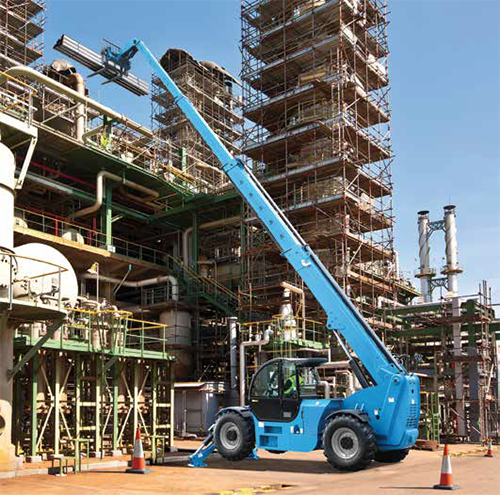July 2017—If the crane operators who visited CONEXPO earlier this year are representative of the crane community as a whole, certification is all but universally considered not just a good thing to have, it’s essential to safe operations on construction sites around the country.
 Of the more than 100 responses received to a survey conducted among crane operators by NCCCO at the event, fully 94 percent stated that certification was “very important” for cranes to be operated safely. A further 5 percent said it was “somewhat” important. Safety was the No. 1 reason cited. As one respondent put it, “Would you put an inexperienced, untrained, untested person in a $20,000 car? No? Then why would you put them in a $3 million crane?”
Of the more than 100 responses received to a survey conducted among crane operators by NCCCO at the event, fully 94 percent stated that certification was “very important” for cranes to be operated safely. A further 5 percent said it was “somewhat” important. Safety was the No. 1 reason cited. As one respondent put it, “Would you put an inexperienced, untrained, untested person in a $20,000 car? No? Then why would you put them in a $3 million crane?”
So convinced were the respondents of the merits of certification, they wanted it extended to other types of equipment. Forklifts figured prominently, but the list ranged from excavators and aerial work platforms to concrete pumps and pipe layers. When asked specifically about telescopic handlers (which are rapidly encroaching on activities traditionally the preserve of cranes), fully 96 percent stated that operators of such equipment should be certified.

An overwhelming majority of crane operators believe that operators of telehanders (such as the one pictured) should have to be certified.
But is certification enough? The overwhelming majority of respondents didn’t think so. Experience and training were the two most often cited aspects they felt should be combined with certification for an operator to be deemed “qualified.” The ability to recognize hazards and the importance of having the “right attitude” were also called out as being critical.
Certification ought not just be confined to operators, however. Lift directors, assembly/disassembly directors, and, of course, riggers and signalers all needed to be certified for a lift to be conducted safely, in these respondents’ opinion. “Everybody that has anything to do with crane operations” was one comment that summed up the general opinion.
The experience of operators polled in the survey ranged from 47 years down to “less than a month,” with an average seat time of 17 years. They hailed from all corners of the United States. Most (87 percent) were telescopic boom crane operators but over half (57 percent) also had lattice boom experience.